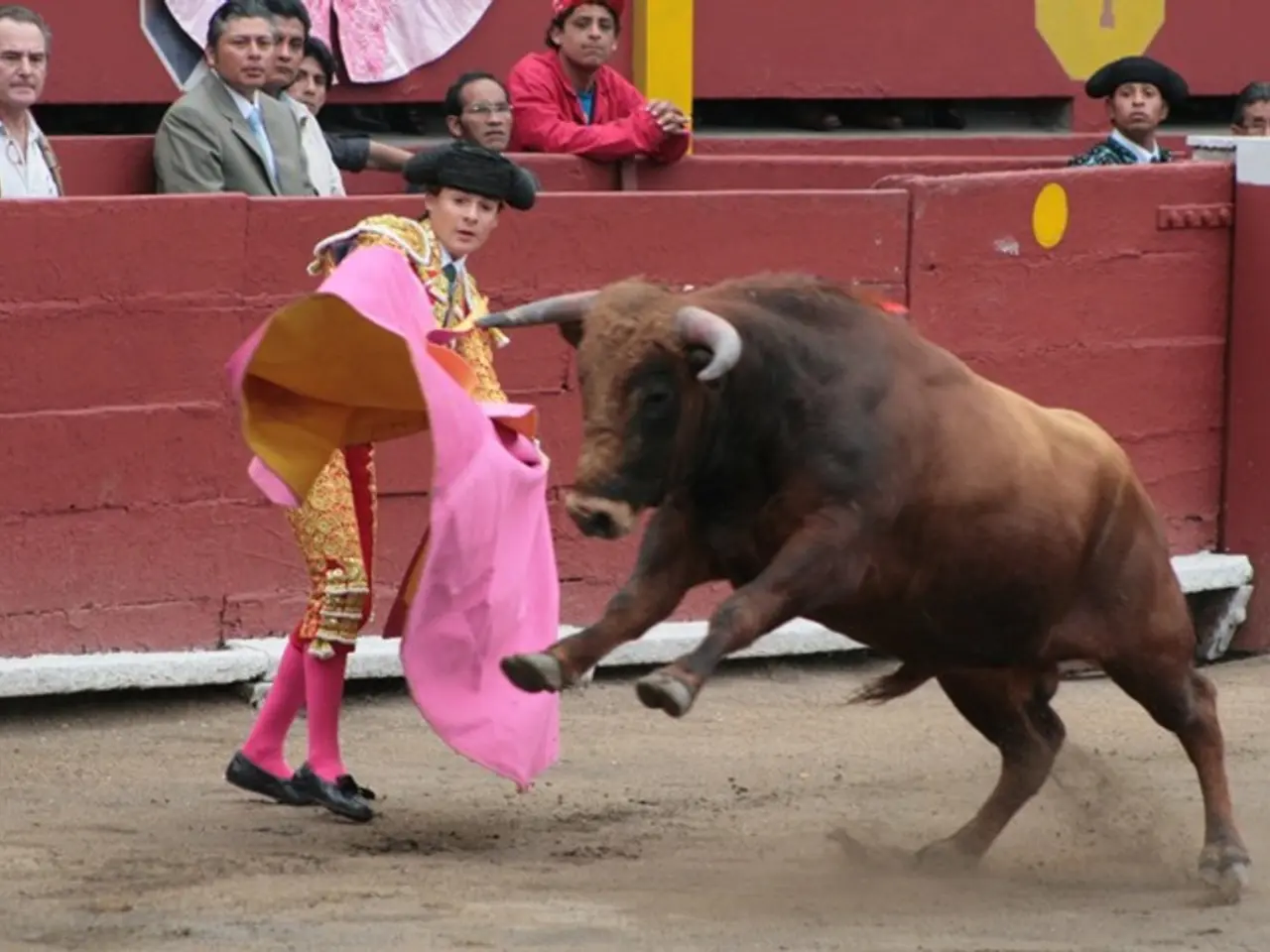Taiwanese Workers Cry Out for Change:
Workers' unions hold demonstrations to demand improved job conditions.
Shaking up the status quo, Taiwanese workers took to the streets in front of the Presidential Office in Taipei, demanding improved working conditions.
The rally, marked by anti-bullying protests and calls for shorter working hours, higher wages, and a more stable labor supply, was a clarion call for the government to act.
Driven by incidents of workplace bullying, such as the suicide of a Ministry of Labor staffer in 2023, allegedly due to abuse by a high-ranking official, labor groups are seeking explicit legal protections against harassment and bullying.
According to data, Taiwanese workers log the second-highest average annual working hours in Asia, only behind Singapore. With a four-day workweek on their wish-list, unions are demanding a three-day weekend and reductions in the number of weekly working hours.
In addition, unions are pushing for a substantial increase in the minimum wage, citing rising living costs, and pension reforms to address changing demographics.
Moreover, calls have been made for a "just transition" framework to protect workers in high-emission industries amid Taiwan's 2050 net-zero goal, lowering membership thresholds for union establishment, and addressing understaffing in crucial sectors like healthcare, education, and childcare.
While the government has not issued specific policy announcements in response to these demands, labor groups are pushing for formal inclusion in climate policy discussions, such as representation on the carbon fee review committee.
Historically, Taiwan has incrementally raised minimum wages and adjusted labor laws, but the current administration’s stance on the four-day workweek and pension reforms remains unclear. With nations like Japan, South Korea, and Hong Kong offering more holidays for workers, Taiwanese unions advocate for expanded leave and additional public holidays to counteract the culture of overwork.
In the midst of global economic tensions and fears of industry relocations or layoffs resulting from U.S.-China tariff disputes, workers marched in Taipei on May 1, 2025, emphasizing wage hikes and job security. Protesters also targeted global economic policies, symbolizing their dissent through a caricature of Donald Trump.
- Hsieh, a prominent labor activist, led the Taiwanese workers' rally, advocating for stronger health-and-wellness protections in the workplace to prevent incidents like the 2023 suicide of a Ministry of Labor staffer.
- The Taiwanese government was urged to take action in response to the rally, with labor groups advocating for science-backed workplace-wellness policies to promote employee health and reduce workplace bullying.
- As part of their demands, labor unions proposed an increase in the minimum wage, arguing that it should reflect Taiwan's rising living costs, and called for a transition framework to protect workers in high-emission industries during Taiwan's shift towards net-zero emissions by 2050.
- In a symbolic display of their dissent during the May 1, 2025, protest, Taiwanese workers caricatured Donald Trump to express their discontent with global economic policies they believed threatened their job security and wage growth.






